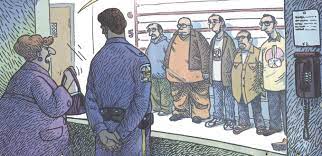Eyewitness Testimony and Its Reliability in the Law Court
May 08, 2023
This essay discusses the reliability of eyewitness testimony and its use in law court.
Eyewitness accounts often form an integral part of criminal proceedings, serving as evidence which can be used to determine guilt or innocence. However, due to a variety of psychological factors, such accounts are not necessarily reliable and can suffer from errors in memory recall and interpretation. This essay examines several different aspects of eyewitness testimony - including accuracy, bias and contextual influences - in order to assess the validity of using this type of evidence in legal proceedings.
Studies have demonstrated that while people may seem confident when describing their memories of a particular incident, they are often inaccurate or incomplete in their recall. Memory is not a perfect record but instead is affected by various cognitive processes, such as distortion or confabulation. This can lead to false memories, where a person remembers an event which never occurred. Similarly, memory can be affected by post-event information; if someone is given details about the incident from another source after it has happened, these details may be incorporated into their own recollection of the event and become part of their "memory" even though they were not actually present at the time.

The accuracy of eyewitness testimony is further compromised by potential bias and prejudice on the part of the witness. These biases can include prior beliefs held by the witness that are then applied to the recollected event, or expectations that influence their interpretation of what took place (such as being more likely to recall someone's race accurately if it corresponds with previously held racial stereotypes). Additionally, the framing of questions can play a role in how accurately witnesses recall an incident; if they are asked leading questions or given limited choices to pick from, this can cause them to interpret the facts differently than if they were given more open-ended options.
Finally, the context surrounding an event can also impact eyewitness testimony. Factors such as the amount of time that has passed since the event took place, lighting conditions at the time it occurred and other environmental details may all affect how accurately a witness is able to remember what happened. Furthermore, stress or trauma experienced by a witness prior to or during an event can lead to dissociation and further distort their memory of it afterwards.
